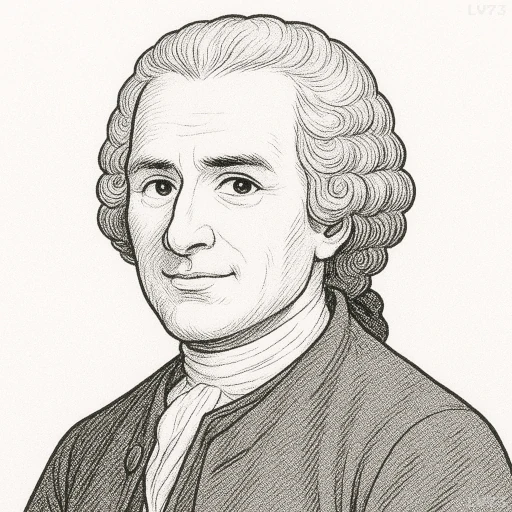“The person who has lived the most is not the one with the most years but the one with the richest experiences.”

- June 28, 1712 – July 2, 1778
- Born in Geneva
- Philosopher, political philosopher, writer, composer
table of contents
Quote
“The person who has lived the most is not the one with the most years but the one with the richest experiences.”
Explanation
In this quote, Jean-Jacques Rousseau challenges the common notion that age or the number of years lived determines the richness of a person’s life. Instead, he argues that the true measure of a life well-lived is not the length of time one has spent on Earth, but the depth and quality of one’s experiences. Rousseau suggests that a person who has had a wide range of rich, meaningful, and transformative experiences—whether through relationships, challenges, travel, learning, or self-reflection—has lived a fuller life, regardless of how many years they have accumulated. In essence, the focus is on engagement with life, rather than simply its passage.
Historically, Rousseau’s view reflects his broader critique of the way society measures success and value. He was often critical of society’s obsession with materialism, status, and superficial achievement, all of which can overshadow the internal and personal growth that comes from deep, meaningful experiences. In works like Emile, Rousseau stressed the importance of authentic experiences and learning through direct engagement with the world rather than through passive or rote existence. His philosophy encouraged individuals to seek out lives full of purpose, reflection, and emotional richness, rather than simply allowing time to pass.
In modern times, Rousseau’s quote serves as a reminder that life should be defined by the quality of the experiences we have, not just the years we accumulate. In a world where busyness and productivity are often prioritized, Rousseau’s words encourage us to reflect on what truly gives life meaning—our relationships, personal growth, creative pursuits, and moments of deep reflection. This perspective encourages a shift away from the quantitative aspects of life and toward the qualitative, suggesting that it is not how long we live, but how fully we engage with life that truly matters.
Would you like to share your impressions or related stories about this quote in the comments section?
